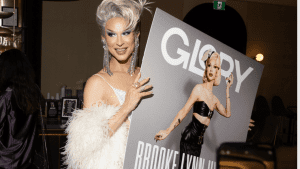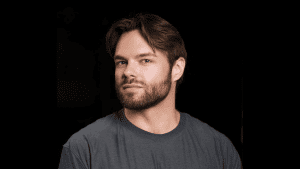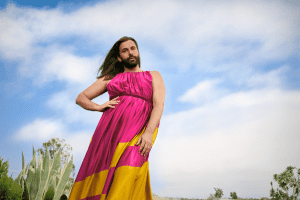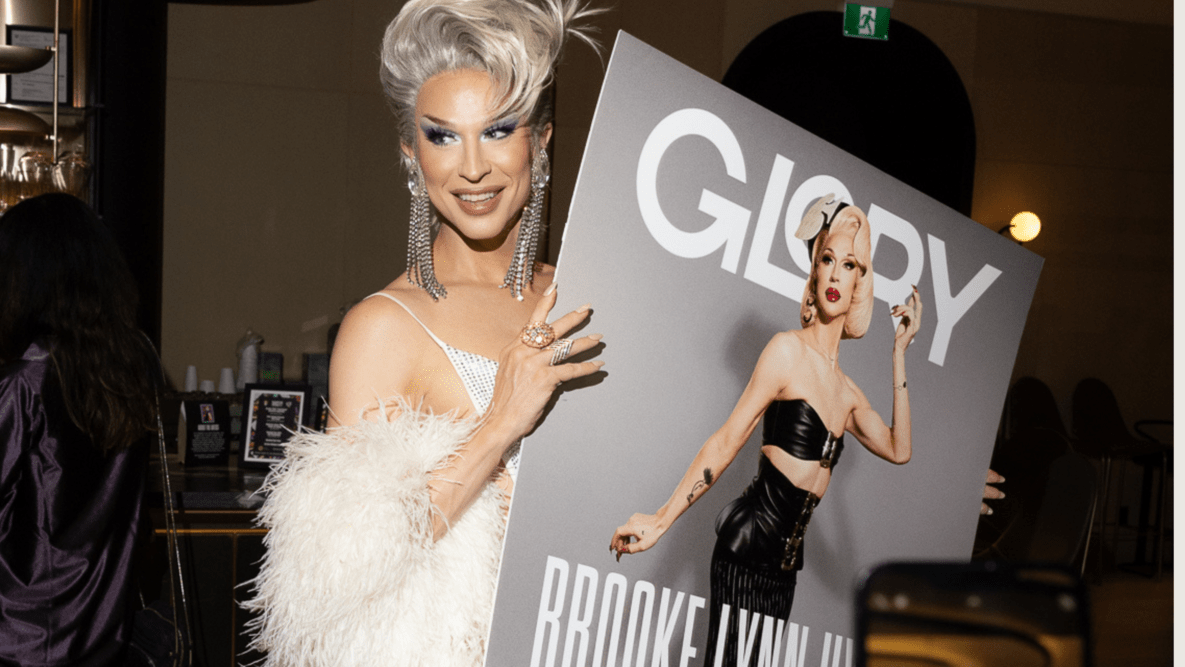There are few people in media who radiate the kind of glowing, positive, and unabashedly joyful energy quite like Jonathan Van Ness.
Known primarily for their co-hosting duties as the resident beauty guru on Netflix’s Queer Eye reboot, it is the magnetic charm and personality of Van Ness (who is non-binary and uses “they,” “he,” and “she” pronouns) that has helped them build the foundation of a media empire that spans everything from New York Times bestselling books, soldout standup comedy tours, and, most recently, a second Netflix series based on their wildly successful podcast, Getting Curious with Jonathan Van Ness. Whether they intended it or not, Van Ness is an entrepreneur by every definition and their latest endeavour is just another addition to their impressive CV.
Launched in 2021, JVN Hair is the result of over two years of development that shifts the focus on hair concern over hair type via its hero ingredient, hemisqualane (a derivative of bio-fermented sugarcane.) Naturally, the vegan haircare brand is an extension of Van Ness. Yes, it’s a product that performs, but it’s also a platform where Van Ness can parlay their values, mission, and body of work through the lens of beauty. It’s one that espouses inclusivity, sustainability, and a larger dialogue around what it truly means to have freedom of self-expression—or, as they put it, to “come as you are.”
While in Toronto promoting JVN Hair, Van Ness sat down with Glory Professional Editor-in-Chief Lance Chung to discuss beauty, what Pride means to them, and protecting trans rights.
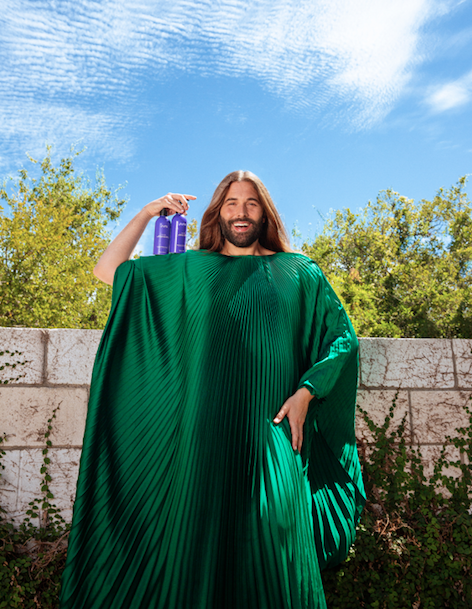

You have your own hair care line, JVN Hair. Why was that important for you to start for yourself?
Jonathan Van Ness: It was something that I never realized I would have an opportunity to do. I love to learn and am a natural student, and the beauty industry and beauty brands are no exception [to my curiosity]. I always loved styling and playing with hair. And then I became a hairdresser and got to experiment with different brands and on different types of hair. I’ve learned so much throughout my career and have got to interview all of these incredible product formulators and chemists, so it just felt natural.
It also felt empowering to start JVN Hair because I realized that through my platform, I can affect change and do so in spaces where you wouldn’t even think that you can affect change. Beauty is one of those undercover spaces where we can affect a lot of change without even realizing it.
When I was growing up, I had a really close family member undergo chemotherapy. It was the first moment in my life where I really understood the power of hair, or, in this case, the absence of hair and what it means to us as a source of strength and power. There is a larger dialogue around culture, equity, and value here. What kind of conversation are you looking to have when you talk about hair?
Jonathan Van Ness: I think part of what is so incredible and unifying about hair is its relationship to self-expression. Everyone has a relationship to hair or, in your story, a relationship to a lack of hair, which brings up its own difficulties in the relationship to self-expression. Growing up, being assigned male at birth, and being someone who really wanted to mix glitter with gel and braid my hair and do my Barbie’s hair or anyone’s hair who would sit down, I didn’t know what I was doing. I was always made to feel keenly off for wanting to do hair. I remember my stepdad barging in on me when I would be getting ready for a family dinner, and he would be like, “Enough of this preening, get out of the bathroom. You’re a boy, you’re not meant to be doing this.” I was always made to feel weird for wanting to express myself differently. I don’t want anyone to feel weird for the ways that they want to express themselves because this is all such a joy that we’re even here and get to have this experience to live. I want people to feel free to express themselves.
That’s kind of my ethos with JVN Hair. The reason why we say “Come as you are,” is because I want to celebrate everyone as they are. So, come as you are, you’re welcome to play in this gorgeous haircare sandbox no matter your age, race, gender—we’re here for you. You’re allowed to feel glamourous, you’re allowed to feel your best self, you’re allowed to investigate your hair as a form of self-expression over here. You’re allowed to do that.
LISTEN: Queer Eye’s Tan France on How to Walk Into a Room with More Confidence
You’ve got six seasons of Queer Eye under your belt. What’s the biggest thing that you’ve learned about yourself throughout the experience?
Jonathan Van Ness: Duality—that so many different things can exist at the same time. We’re in a time where trans and gender nonconforming people can be on a platform like Netflix and, for me, have two New York Times best-selling books, a house that I love, a husband, and this beautiful life that I’m really proud of. I have other trans and gender nonconforming friends that are more visible than we’ve ever been. But, at the same time, we have three states that have weaponized gender-affirming healthcare and are investigating families. If some of their classmates think that there’s a kid in class that doesn’t look enough like a boy or a girl, their families can literally call the Department of Child and Family Services on that family.
We have the ‘Don’t Say Gay’ bill in Florida, where teachers can’t say if they have kids, are married, or are from a same-sex household because they can get fired. These anti-trans bills are weaponizing gender-affirming healthcare, which can also look like mental healthcare. It can look like puberty blockers, which are backed by every single major medical association. There is no debate over their safety, efficacy, or reversibility. In fact, puberty blockers are prescribed for cisgender kids all the time.
There’s just so much misinformation, fear-mongering, and terror that is befalling trans people. And at the same time, there’s more visibility for trans and gender nonconforming people. Those things are going on at the same time and that’s really confusing because there is progress, but at the same time, so much regression.
What is your calling?
Jonathan Van Ness: My mission is to promote self-acceptance and love by modeling joy and compassion. If what I’m doing isn’t in line with that, then I don’t want to do it.
At the beginning of my entertainment career, I really just wanted stability. I wanted access to my HIV medication every month. I didn’t want any support for that. I didn’t want to worry about rent and maybe buy a house. Then as I realized how big my platform was and how many people our show was touching, I understood how many people were also being touched by my personal work through my books, writing, comedy, podcast, and my show. I want to help people.
I think that part of joy and curiosity is authenticity. It’s about sharing where you’ve been as long as you feel safe to do so. I don’t think I was aware of how much suffering there was, and that was even before these anti-trans bills. As much progress we’ve made, our community is just going through so much. I just want other people to get in on this fight with them. That means hiring gender nonconforming people. That means being an advocate and a real ally for gender nonconforming and trans people. It’s not letting people say transphobic stuff, even when they think they’re in private. It means showing up to vote. It means educating yourself on local politics. It’s a big issue. We’re going through a lot right now.
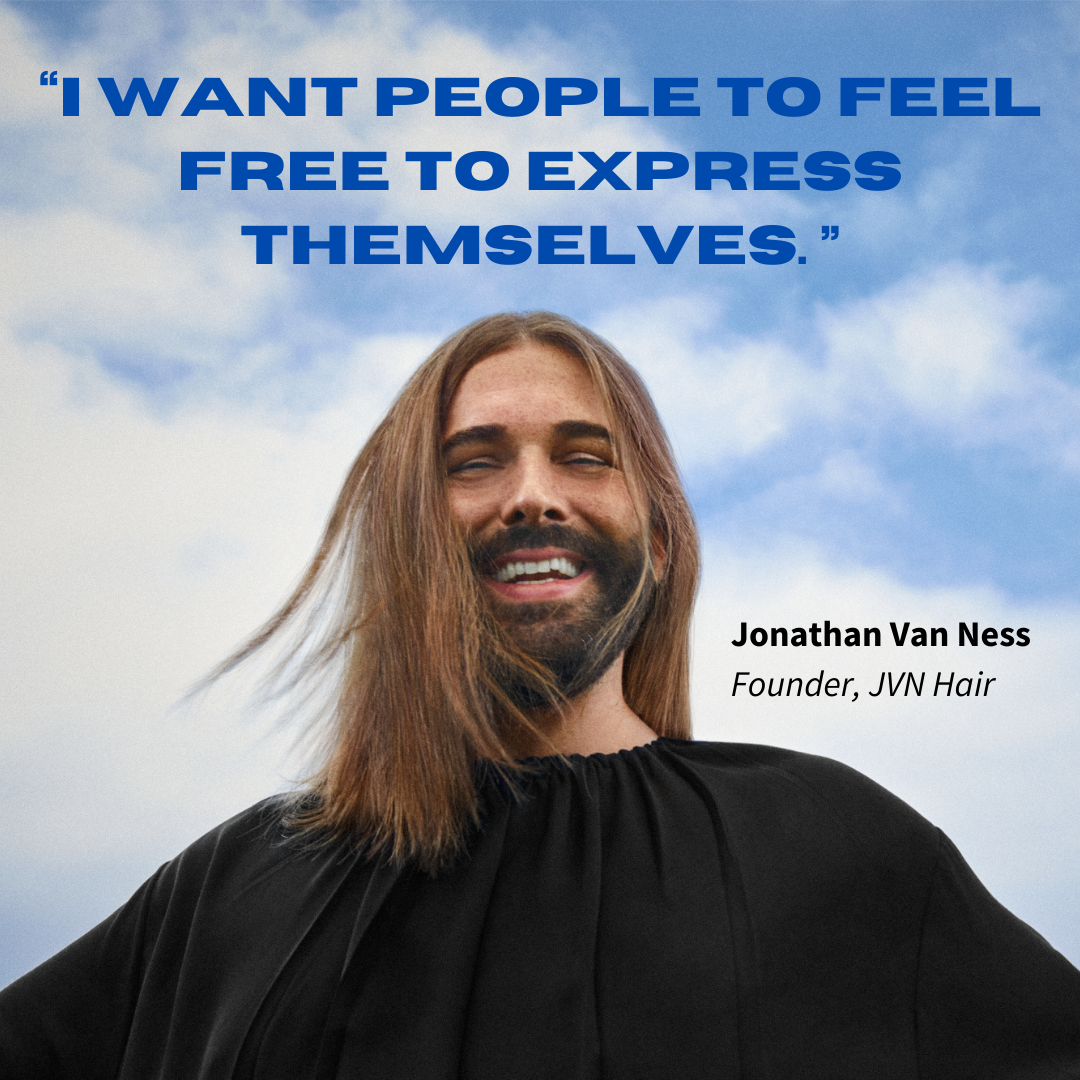

These days, it’s really easy to feel cynical or that the actions of an individual don’t have much impact in these big scenarios. How do you think we can talk to each other as individuals and help move progress?
Jonathan Van Ness: I think that social media is important. Using your platform is important, no matter what its size is because silence is not the answer. Someone might say that they don’t have a big following but if you move three people of your 300 followers or two of your 500, if you change a couple of people’s minds, that moves mountains. Small votes do matter and individual voices are huge.
RELATED: What Can Drag Superstar Priyanka Teach Us About Entrepreneurship?
How do you think trans rights are directly connected to the dialogue around misogyny?
Jonathan Van Ness: When it comes to gender nonconforming and trans rights, a lot of times our allies don’t realize that this is their fight too because of the violence and the misogyny that accompanies the enforcement of the gender binary.
If you want to talk about our gun epidemic, it is steeped in patriarchy and in misogyny. It’s when you look at white nationalism and domestic white evangelical terrorists, the toxic misogyny that is bred from that goes back to the gender binary. You can literally draw a straight line from Francis Galton, who literally invented eugenics and replacement theory. Terrorists who get radicalized off of these conservative values, these family values—you can draw a straight line from these values back to eugenics.
We have to be really clear here—why men? Why is it that so many American women get killed by their partners? It is the gender binary, honey. It is this toxic masculinity that parades around as bravery that we celebrate in so many realms that is so dangerous. Women are getting killed by their partners. We have these men (mostly straight men) blowing people away with guns, but it’s trans people that we’re targeting? That doesn’t make sense.


A lot of these issues are gender issues, we just don’t necessarily realize it. People think that it’s a trans thing—that it isn’t a “me” thing—but now look at what’s happening with Roe v. Wade. That is the same toxic masculinity that has [Supreme Court] Justice [Samuel] Alito misinterpreting American history to say that abortion and reproductive autonomy isn’t deeply rooted in it. But guess what? Benjamin Franklin had an abortion recipe in his recipe book. Midwives used to provide abortion tonics all the time. It goes back to the 1600s. Women and people who get pregnant have been seeking out reproductive healthcare for hundreds of years. This isn’t new. The oppression of women, the oppression of trans people, the oppression of Black and Brown people, the oppression of disabled people and minority people—this is not new. We’ve been dealing with this for hundreds of years and what we need is for people who do not feel that they are affected by these issues to get off the sidelines and vote and educate themselves on those issues
A lot of the dialogue on Queer Eye is so centered on being proud, loving yourself, joy, and acceptance. Right now, you and I are having this discussion during Pride month. What does Pride mean to you and what does it mean to be a proud person?
Jonathan Van Ness: I think that Pride can mean as many things to you as there are people in it. I don’t think that there’s a right or a wrong way to celebrate it. I was thinking about the capitalization of Pride, not that it should be commercialized, but queer people working with companies year-round and being paid for our academic labour, our mental labour, our expertise—we deserve that. We need to not have everything be commercialized, but on the other side, that visibility and representation, and having those conversations with companies, is really important. I do think that we need to be clearer with companies that we celebrate queer people 365 days a year.
How I think of Pride, personally, is I think about the people who have come before me and worked so hard to make Pride possible. To me, Pride means protest. It literally was a protest against police brutality, which is why I have BLM in my Instagram bio. Pride is a time of reflection and giving thanks to the heroes who have been silently carrying the torch for us for hundreds of years. It’s really important to connect to our history. It makes me feel so much more hopeful because it makes me see how far we have come.


Jonathan Van Ness: I let myself experience things that bring me joy. It comes from trying new things or coming back to things that I thought I was done with. Gymnastics is a huge way that I experience joy, continually my cats, and gardening is something that I experience massive daily joy in that I honestly thought I would hate when my husband first got me into it.
I think we think of joy as this existential, earth-shattering type of joy. But it’s all little things and I think this is why I’m so happy all the time. I survived meth addiction. I am happy to take a deep breath and not have a crazy craving for hardcore drugs. I am so grateful to be able to take a deep breath and look outside and feel how I feel. Every day feels like a vacation for me. Finding that smaller joy is just about being present. It’s the biggest gift that you can give to yourself.
What’s the big picture for you?
Jonathan Van Ness: It’s about celebrating joy and compassion and curiosity. That’s my thing.





